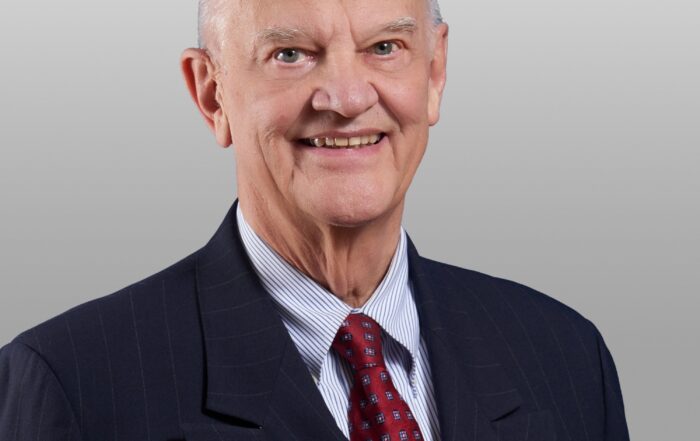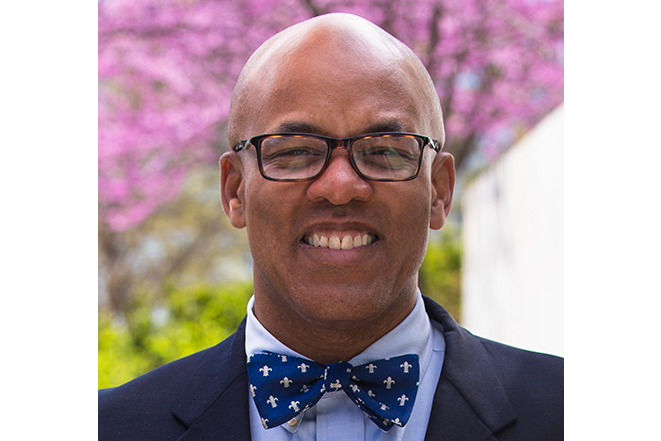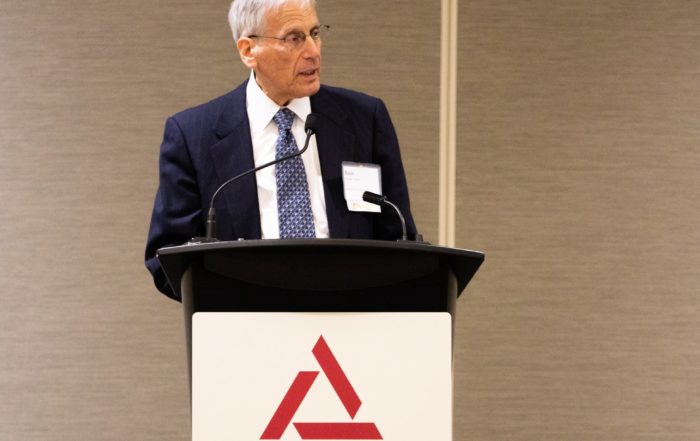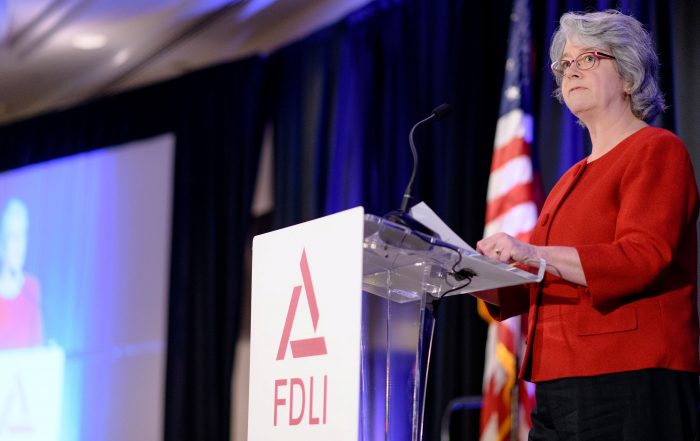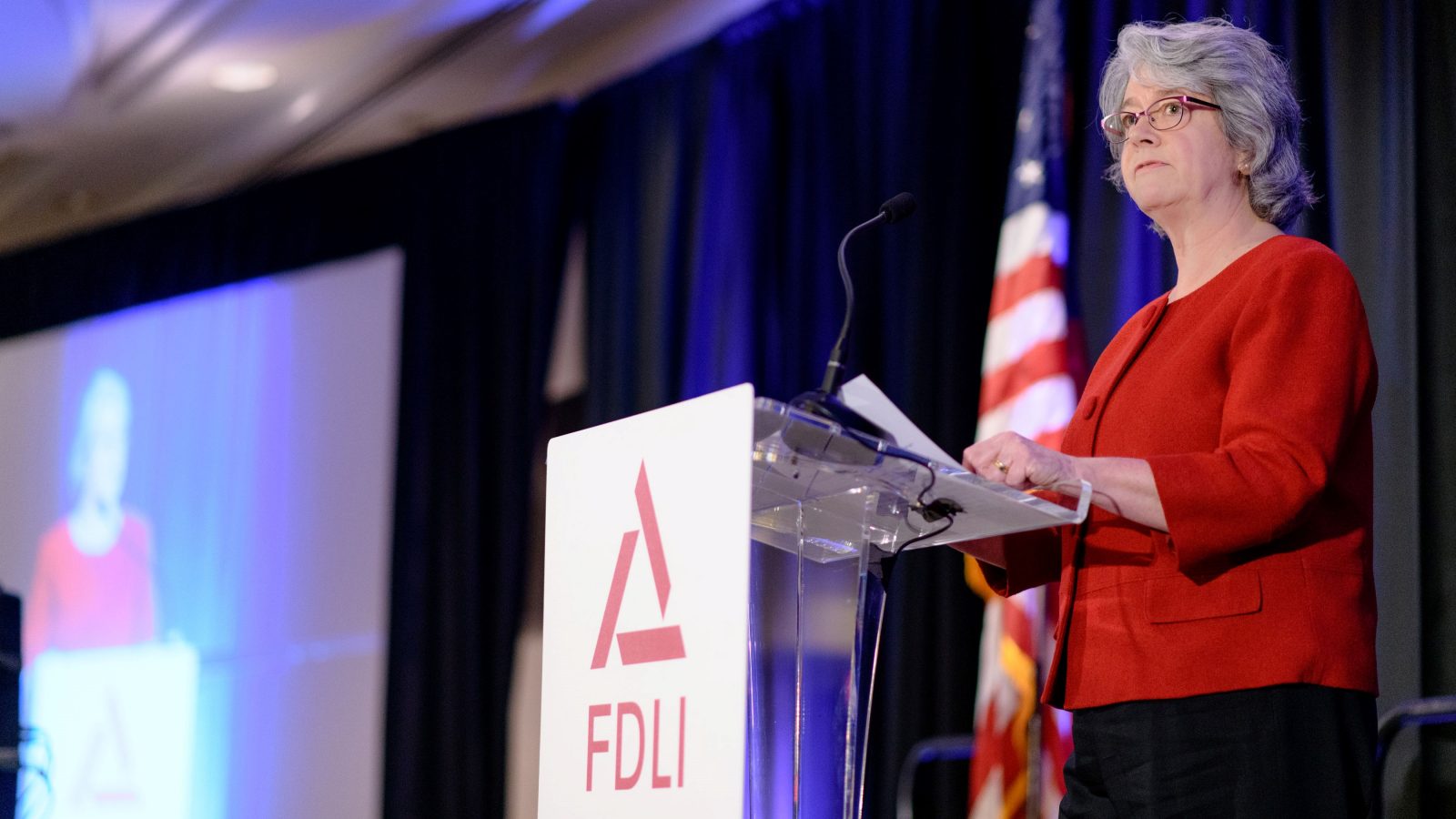
6th Annual Eric M. Blumberg Memorial Lecture
By Elizabeth Dickinson
Let me start by thanking FDLI Leadership for offering me the opportunity the give the annual Rick Blumberg Lecture. I am honored to have been asked to speak, although I confess I was a bit unclear as to what exactly I was to speak about—The Blumberg Lecture has no assigned theme or subject. When she approached me about this event, Amy Comstock Rick suggested I could pick my own topic—that I might want to talk about what I have learned in my time in OCC [Office of the Chief Counsel], perhaps about the FDA issues that are much in the media, or just about FDA issues I believe are important. Somehow it seems fully in the spirit of Rick Blumberg—in whose memory this talk is given—that I have been granted leave to do what I want. Rick was never happier than when he was left alone by OCC management or DOJ to do exactly what he wanted. If I were really giving this talk in the spirit of Rick Blumberg, I would do so in shirtsleeves, sockless, and smoking a cigar. Forgive me, Rick, if my respect for your memory won’t take me quite that far.
Let me further introduce myself—I have been in FDA’s Office of Chief Counsel since 1994. For those of you who mark the passage of the years by the amendments to the Food, Drug, and Cosmetic Act, I started at FDA before DSHEA, FDAMA, BPCA, MDUFMA, PREA, FDAAA, the BPCIA, the Tobacco Control Act, FSMA, DQSA, and Cures.
As with other new OCC hires in the mid-1990s, I started in the office as a litigator. After less than a year in litigation, I was asked to take over the Hatch-Waxman counseling portfolio, because every other attorney who had worked on Hatch-Wax-man had left the office. (Those departures should have told me something about the nature of the legal issues I was taking on—but I did not heed that warning.)
I spent the next 15 or so years deeply—and happily—engaged in program counseling and litigation support related to generic drugs, biosimilars, and the full range of exclusivity and IP issues. In 2011, I was asked to be acting Chief Counsel upon Ralph Tyler’s departure, and in 2012, I became a career Chief Counsel. With the arrival of Rebecca Wood as Chief Counsel in July 2017, I took on the role of Senior Deputy. And I have continued in that position with Chief Counsel Stacy Amin who spoke to you yesterday. It appears I am an OCC “lifer.”
For those of you who are not familiar with Rick Blumberg’s work and legacy—and there will be more of you as the years pass—let me tell you about him.
Rick too was an OCC lifer. He started in the office in 1970, the year after he graduated from Georgetown University Law School. When he died in March 2013, he was OCC’s Litigation Deputy. With over 40 years in the office (through Chief Counsels Goodrich, Hutt, Merrill, Cooper, Buc, Scarlett, Porter, Troy, Bradshaw, Masoudi, Tyler—all of them), he is the longest-serv-ing OCC attorney.
Rick was a force of nature—a fact particularly apparent to those who sat opposite him in negotiations or on contested cases.
The words that best describe Rick are tenacious, candid, dedicated, and determined. And stubborn. He was both erudite and profane. He was an idealist in that he believed law could be used to accomplish great good for the public health, but he was also pragmatic. Rick’s top line was always what was the best way to use our authorities to protect the public heath—from adulterated food, unapproved drugs, fraudulent medical devices.
One of Rick’s enormous contributions to OCC was that he was an iconoclast—he challenged his colleagues and staff to approach legal problems in new ways. Rick’s way of practicing law was distinctly his own—and no one else’s. His accomplishments and the accomplishments of the office he helped to build remind us of the value of identifying and nurturing lawyers who bring great intelligence, passion, energy, and a unique viewpoint to the job.
Rick was a force of nature—a fact particularly apparent to those who sat opposite him in negotiations or on contested cases.
Over two decades ago, under Margaret Porter’s leadership, OCC underwent a rather painful period of self-analysis and reorganization. We had an all-staff go away with highly-professional management consultants who, after only a single day of trying to direct us into productive engagement and away from snarky wise cracking, were ready to declare OCC entirely unmanageable. Rick—never one for process—gleefully played an important role in creating that perception.
One of Rick’s enormous contributions to OCC was that he was an iconoclast—he challenged his colleagues and staff to approach legal problems in new ways.
But over time, OCC did reorganize. In particular, much of the office organized into teams, primarily focused around the product centers. This was over the objections of many who were accustomed to OCC’s “solo practitioner” model and truly did not believe that attorneys were even capable of working in teams.
In fact, the team structure has served OCC well. And I want to talk about that. About the relationship between teams and individuals with distinct—and differing—ways of approaching the law.
I understand that the settings in which many of you practice law may not lend themselves particularly to a team-based model. A number of new attorneys who have joined OCC from law firm practice have expressed some surprise—and happiness—at learning that much of the office’s work is done by teams, who meet often, share research and work product, brainstorm, and critique. These colleagues have observed that law firm clients generally aren’t interested in paying for more attorney time than strictly necessary. So, they have come to OCC from settings in which they have often worked on projects alone and are now happy to work with others.
My view is that, for much of the work that comes to OCC, attorney teamwork may in fact be the optimum approach. As you well know, FDA must—among other things—regulate against the background of precedent and consistently across affected products. One of the best ways to do this effectively is to pull those with expertise in different areas into the process of legal analysis and advising. Even with respect to a single center, one OCC attorney may not have visibility into regulatory activities across disciplines or program areas. That attorney—and the client—will benefit from the different inputs from team members.
Every specialist in organizational performance seems to have a list of the traits of the most effective teams. Among those often cited are
- A common sense of mission
- Effective communication
- Strong leadership
- Candor
- A shared willingness to work hard and take responsibility
- An appreciation for the value of humor
A number of new attorneys who have joined OCC from law firm practice have expressed some surprise—and happiness—at learning that much of the office’s work is done by teams, who meet often, share research and work product, brainstorm, and critique.
Let me stop here for a minute—on the point of humor. I drafted much of this speech while also watching the funeral of President Bush. In his remarks during the service, Senator Alan Simpson described humor as “the universal solvent against the abrasive elements of life.” I find that characterization particularly appealing—because as lawyers we frequently find ourselves dealing with “the abrasive elements of life.”
Management experts also cite the value of having team members who bring differing—and complementary—skills to the work of the team.
This can also be described as the value of having “cognitive diversity.” High performing teams often include people who approach problems from widely different perspectives—the “left brain” thinkers—characterized as logical and analytic—and the “right-brained” creative and intuitive types. I know we think of lawyers as being—by necessity—logical and analytical and thus “left brain” thinkers. In my experience, however, many outstanding OCC attorneys—including Rick Blumberg and Ann Wion—have been able to effectively tap into the right brain to bring exceptional creativity to agency legal work and thus to achieving the agency’s public health goals.
There are many kinds of diversity for which we in the food and drug bar should strive—and where we fall short.
Today, I would like to advocate for a specific kind of diversity in OCC’s legal work. That is the diversity of experience and perspective. For many years, OCC’s preferred method for staff development was to hire recent law school graduates (many with advanced degrees in science or other disciplines) and train them to become food and drug lawyers in the OCC mode. This has given our office a staff of skilled attorneys expert in the ways of FDA and of agency legal practice. It also—I would note—has provided a rich source of talent from which law firms (and you know who you are) could recruit skilled food and drug lawyers.
Over time OCC’s hiring practices have evolved to focus not only on talented 3Ls interested in food and drug law, but on recruiting laterals, including attorneys from other agencies, from law firms, regulated industry, and public interest groups. In addition to being terrific attorneys, these colleagues have brought to the office the perspectives of their past practices. When an OCC team is grappling with a legal problem—say, the appropriate method for implementing new statutory authority, or the steps necessary to advance a new agency initiative or address an emerging public health threat, or how to respond to an industry challenge to FDA action—those who have worked closely with regulated industry and other stakeholders have important and valuable perspectives to bring to bear—perspectives unlikely to be accessible to those who have worked solely within the confines of OCC.
As you have been reminded throughout this conference, these days FDA has multiple regulatory and enforcement tools at its disposal. Peter Hutt has noted that, when he arrived at FDA in the 1970s, the agency made policy through litigation. As he has described it, FDA often brought a specific case to make a regulatory point. Over the subsequent decades the agency turned more toward regulating through promulgating volumes of detailed regulations and using guidance to describe regulatory recommendations. We also have Warning Letters, along with our statutory enforcement tools of seizures, injunctions, and civil money penalties. And we now have additional administrative remedies.
Decisions about which of these regulatory or enforcement authorities to use in a given setting—and the legal implications for such use—should be informed by an understanding of the effect the action is likely to have. Colleagues with visibility into the dynamics of our various stakeholders, including those directly regulated by FDA, are important to this analysis. Would regulations or guidance be more useful to industry in describing the agency’s interpretation and application of statutory requirements? What is the value of detailed regulations with lengthy preambles? What are the pros and cons of regulatory specificity and regulatory flexibility? Stakeholders often want to know exactly what is required to be in compliance with statutory requirements. But specificity sufficient to provide certainty might not accommodate a heterogenous industry or changes in technology over time. What types of guidance are useful and when? How should a Warning Letter describe violations to be most useful? And what sort of follow-up inter-actions with FDA best help bring the recipient into compliance? How effective are seizures and injunctions in positively influencing broader industry behavior? When should FDA forego these tools entirely and rely on stakeholder education and the bully pulpit?
As we do our work of advising FDA on how to advance the agency’s public health mission, OCC benefits enormously from the views of those who have had clients or colleagues who have been directly affected by the agency’s actions, who have puzzled through a proposed regulation or detailed guidance, who have been surprised by an unexpected Warning Letter or a “sign or sue” letter. We need these insights—even those that are strictly programmatic—to better inform our legal advice to the agency. As you have heard from Dr. Gottlieb, Chief Counsel Amin, and others from the agency, with issues such as tobacco regulation, addressing misuse and abuse of opioids, and responding to and effectively preventing food borne illnesses, there is no short-age of compelling public health issues where the choice of the appropriate regulatory and enforcement tools is critical.
Valuable insight into the industries and products we regulate can come to us from colleagues who have worked closely with our stakeholders. And that is true whether these colleagues join OCC as peer staff attorneys or as managers.
Every Chief Counsel has asked tough questions of the career staff. A line of legal analysis that had been seen as well-established might be the subject of much discussion and debate, as new leadership tests the strength of the authority and reasoning. And while he or she has usually been satisfied that the legal position is sound, occasionally an OCC attorney will go back to the client with advice to approach the problem a different way. As lawyers, we should be adept at deep analysis and effective advocacy. We should look with a clear eye at our clients’ goals and the means they wish to use to achieve them. This process builds good lawyers who give solid legal advice. A legal position that has been aggressively challenged by a skeptical colleague and successfully analyzed and defended by a well-informed advocate has a good likelihood of withstanding whatever may be thrown at it by affected parties—including in litigation. Having members of the OCC team who ask that we look at our legal analysis from multiple different perspectives makes individual attorneys—and the office—stronger, more agile, and more resilient.
Having members of the OCC team who ask that we look at our legal analysis from multiple different perspectives makes individual attorneys—and the office—stronger, more agile, and more resilient.
It is not lost on me that there is a certain irony in my views on the value of bringing on attorneys with experience in industry, the bar, and elsewhere, as my entire professional career has been spent in OCC. But from the vantage point of someone who has been with OCC over many years, I am confident that for our office—or FDA as a whole—to be successful over the long run, we need a solid, well-supported, mix of both professionals committed to the agency for the long term and staff who may spend only a few years with us before moving on. We need the institutional memory and deep expert knowledge that come with years of working in the agency, of providing legal advice through challenging times and under many different leaders. We also need the invigorating influences of those from the outside who will bring different knowledge and perspectives to the work. We need the dynamism that comes with reviewing assumptions and establishing new ways of doing business, of welcoming new colleagues into the fold.
Of the many newer and mid-career attorneys in OCC today, I know there is a solid cohort who are in it for the long run—they will be that crucial backbone of the office well into the future. Others may stay for a few years and leave for other jobs (probably with some of you—but who’s bitter…). Moreover, I suspect that some of your star associates and reg counsel may be contemplating a jump to FDA. And I know that the rosters of many stellar firms already include notable OCC, FDA, and HHS alumni. Whichever way this process goes, it enriches all of us who work in this arena. Government and bar ethics rules, along with high personal standards of conduct, should provide guardrails to protect against conflicts and inappropriate disclosures. Meanwhile, when you have a former (or possibly future) colleague across the negotiating table, as opposing counsel on a case, or on the other end of a difficult telephone call, the odds are good that civility and respectful behavior will prevail and that the combined knowledge, experience, and perspectives will help in reaching an appropriate outcome.
…to this day OCC gets feedback from some of you that sustained change and improvement in your establishments came about because of Rick’s insistence that you put provisions in place to make compliance the norm in your everyday work.
So, with thoughts of negotiating tables, opposing counsel, and difficult phone calls in mind, let me turn back to Rick Blumberg.
Rick spoke at these compliance and enforcement conferences often. He knew that attendees came to their work from widely differing perspectives. As one of the memorials at the time of his death observed, Rick was perceptive about, if not always sympathetic to, the needs of the industries FDA regulates. Rick’s guiding principle—one common to FDA employees—was his sense of responsibility and mission to protect the public health. He recognized that FDA is frequently the buffer between dangerous products and vulnerable patients or consumers. More than once he challenged conference attendees to put themselves in the shoes of the consuming public and to act in a way that would produce products they would use them-selves or feel comfortable giving to their family. Rick believed that a commitment to compliance from those in leadership was imperative. In fact, to this day OCC gets feedback from some of you that sustained change and improvement in your establishments came about because of Rick’s insistence that you put provisions in place to make compliance the norm in your everyday work.
Rick certainly modeled his own standard of excellence for OCC. And you will find excellence today in OCC attorneys, who are committed to supporting the agency in its ever more challenging mission to advance and protect the public health.

